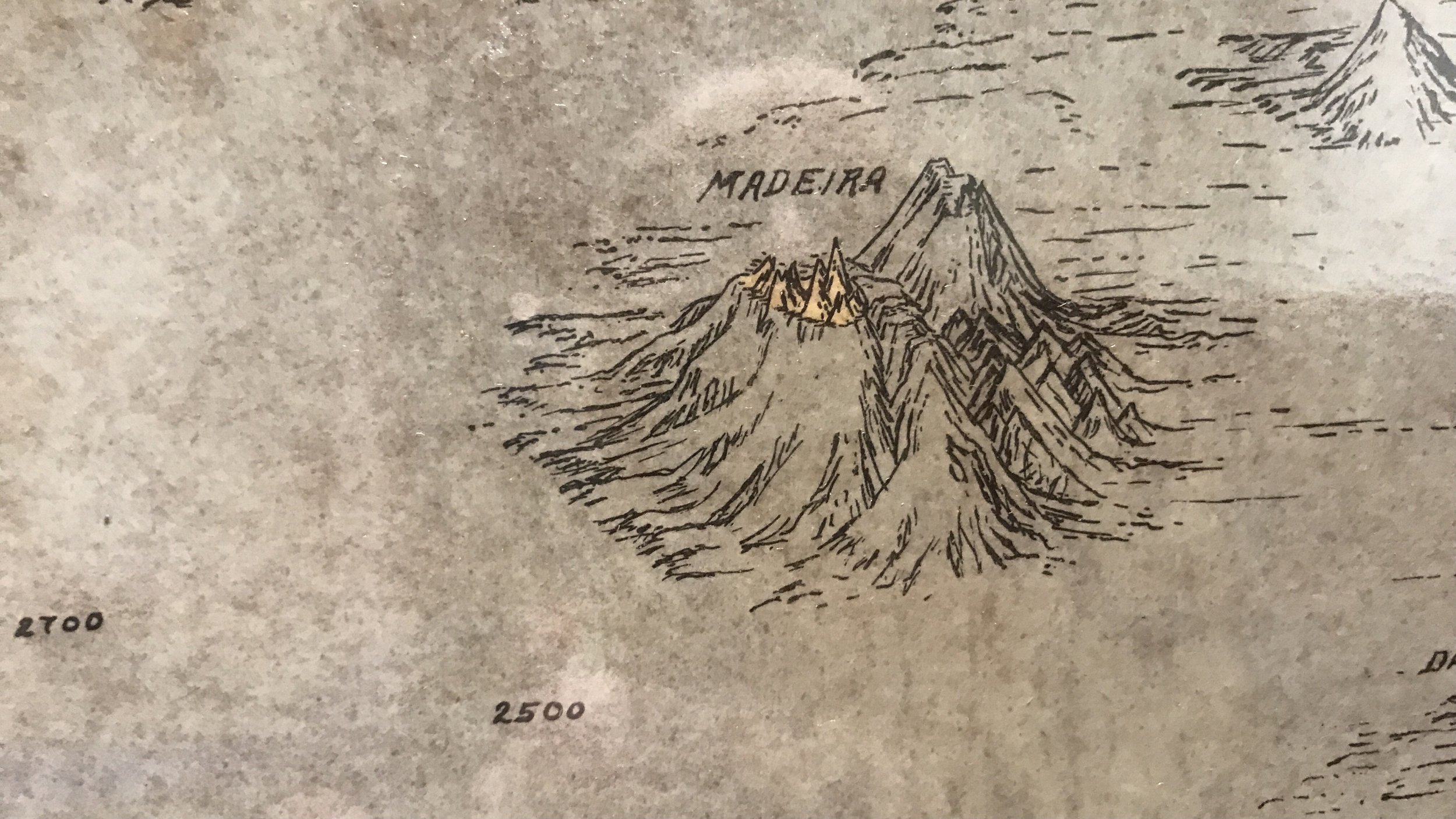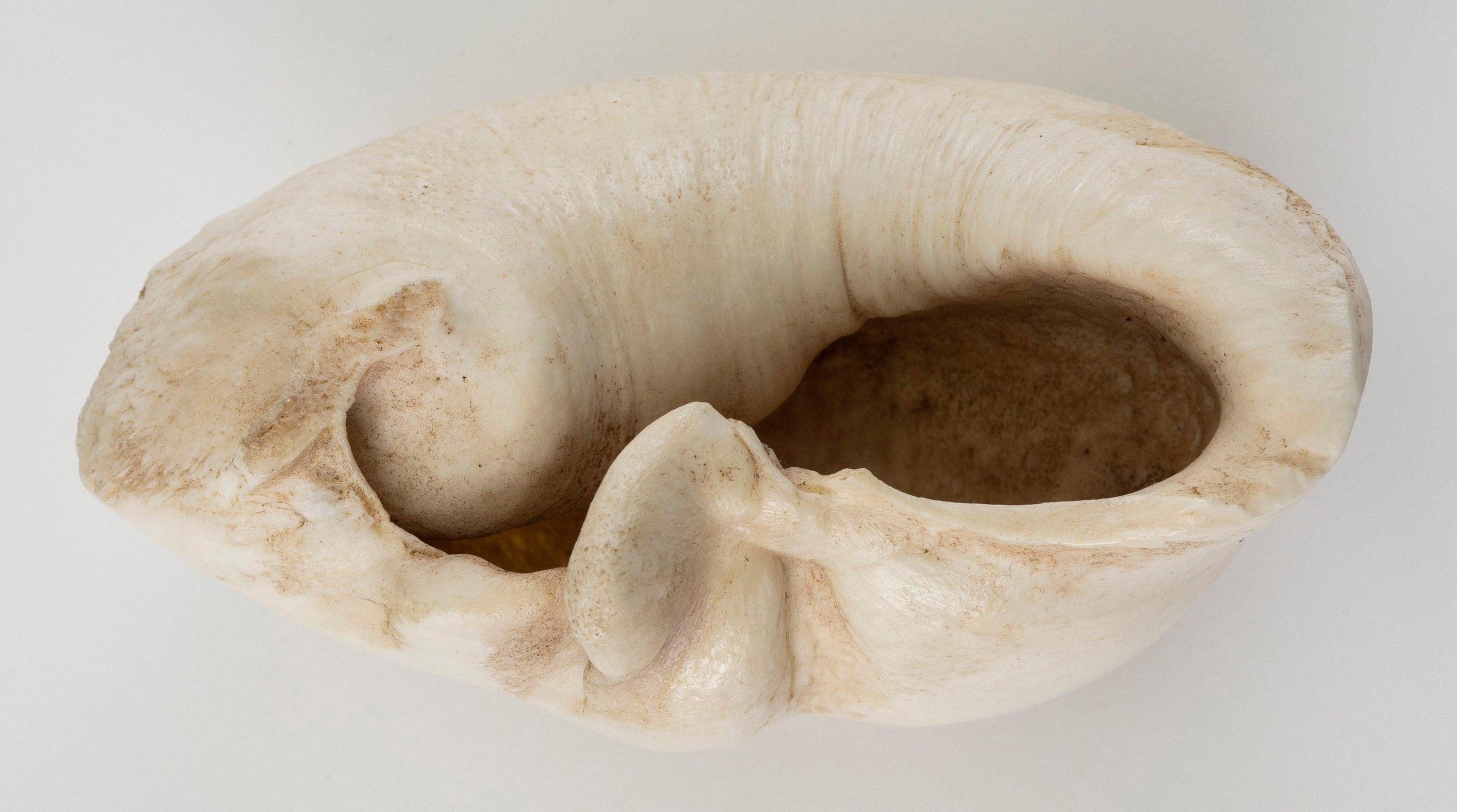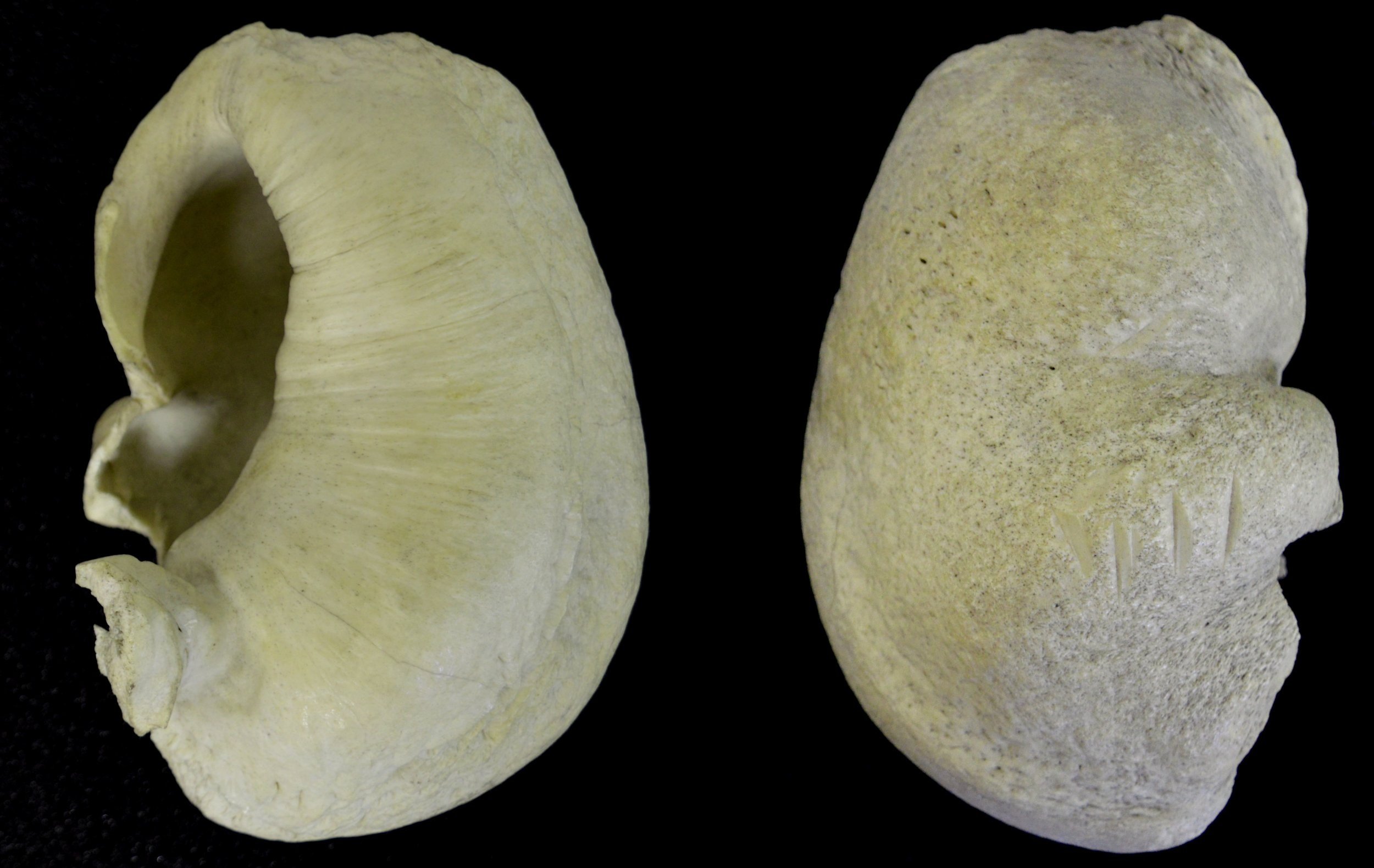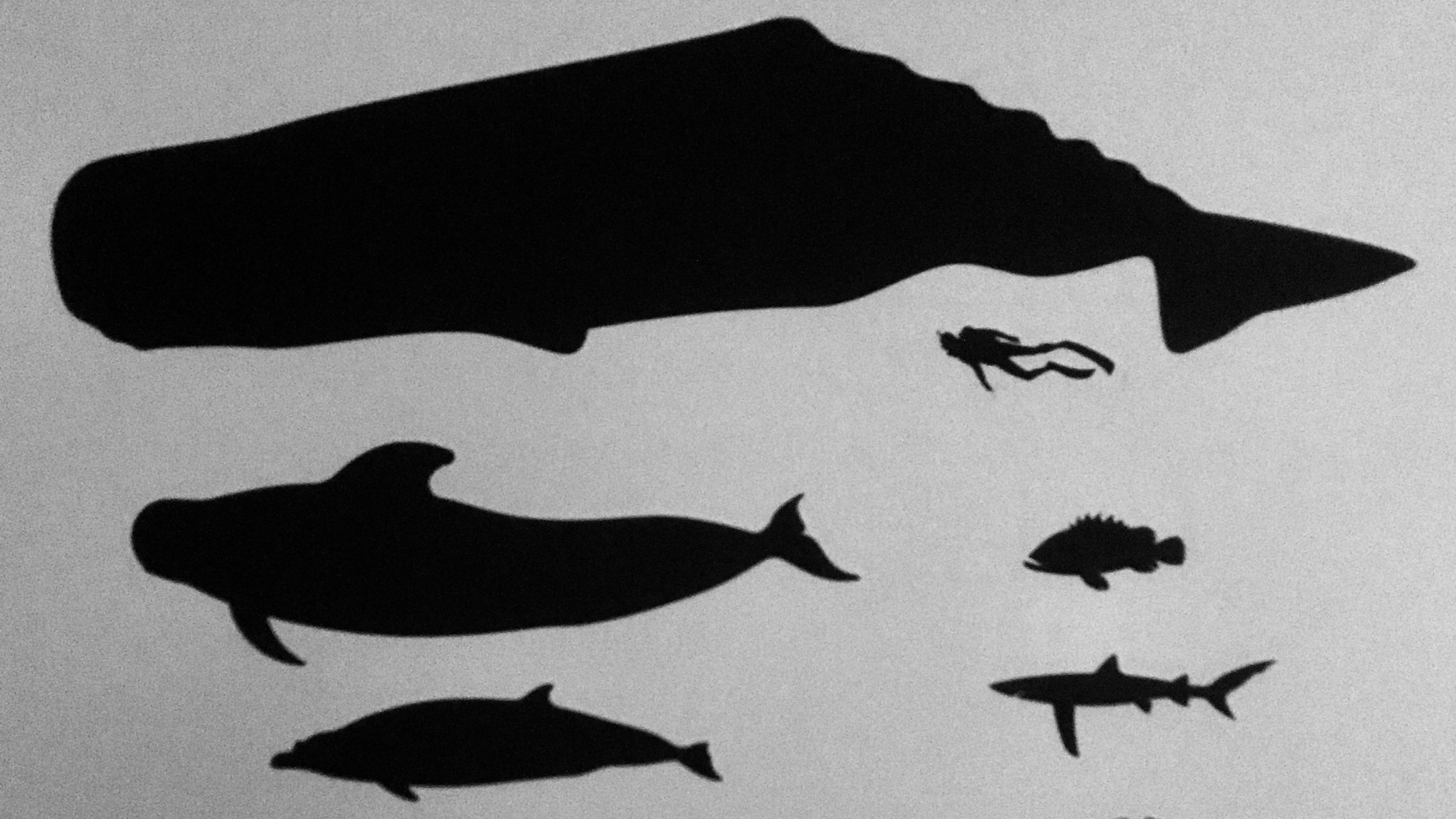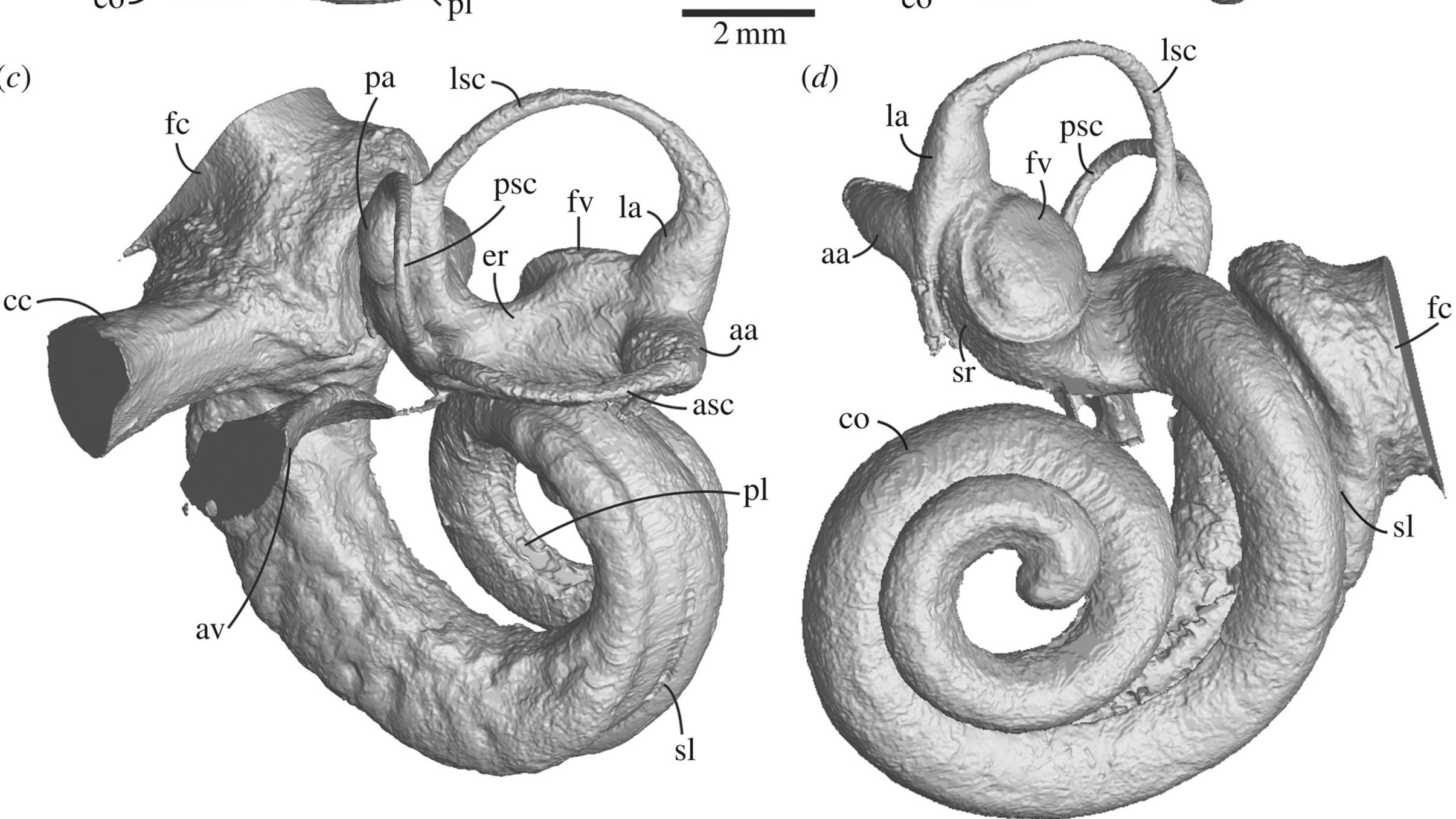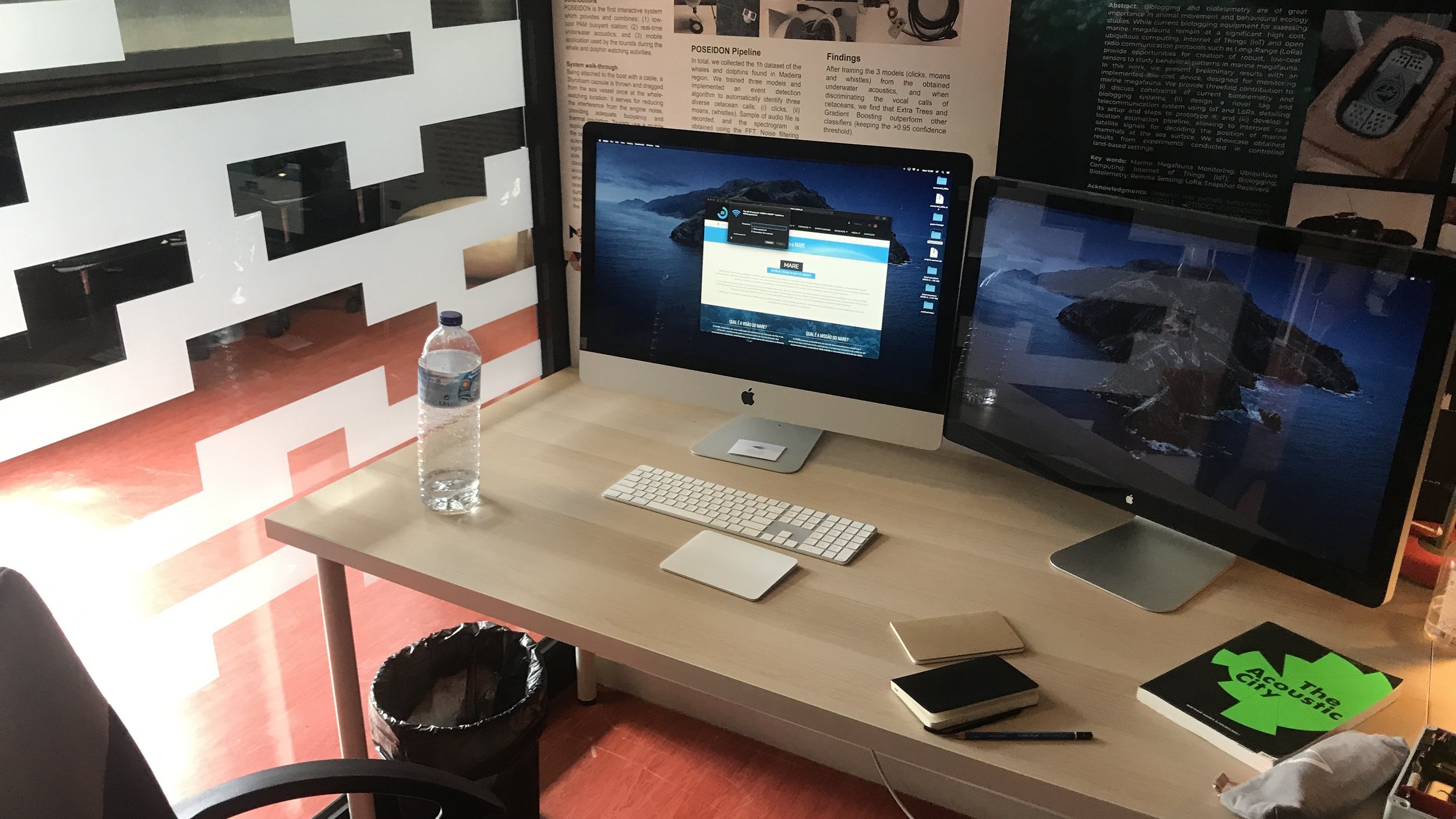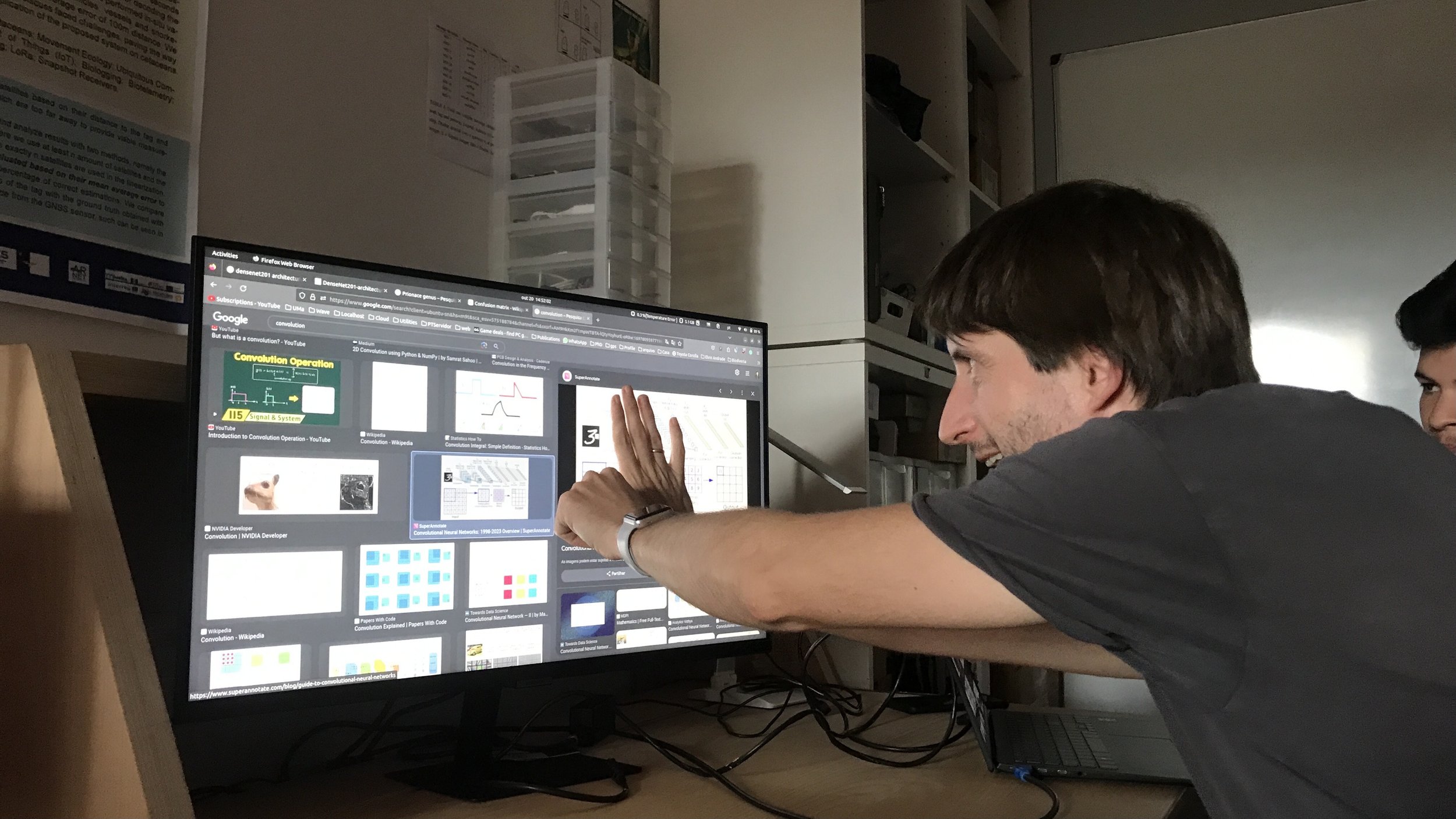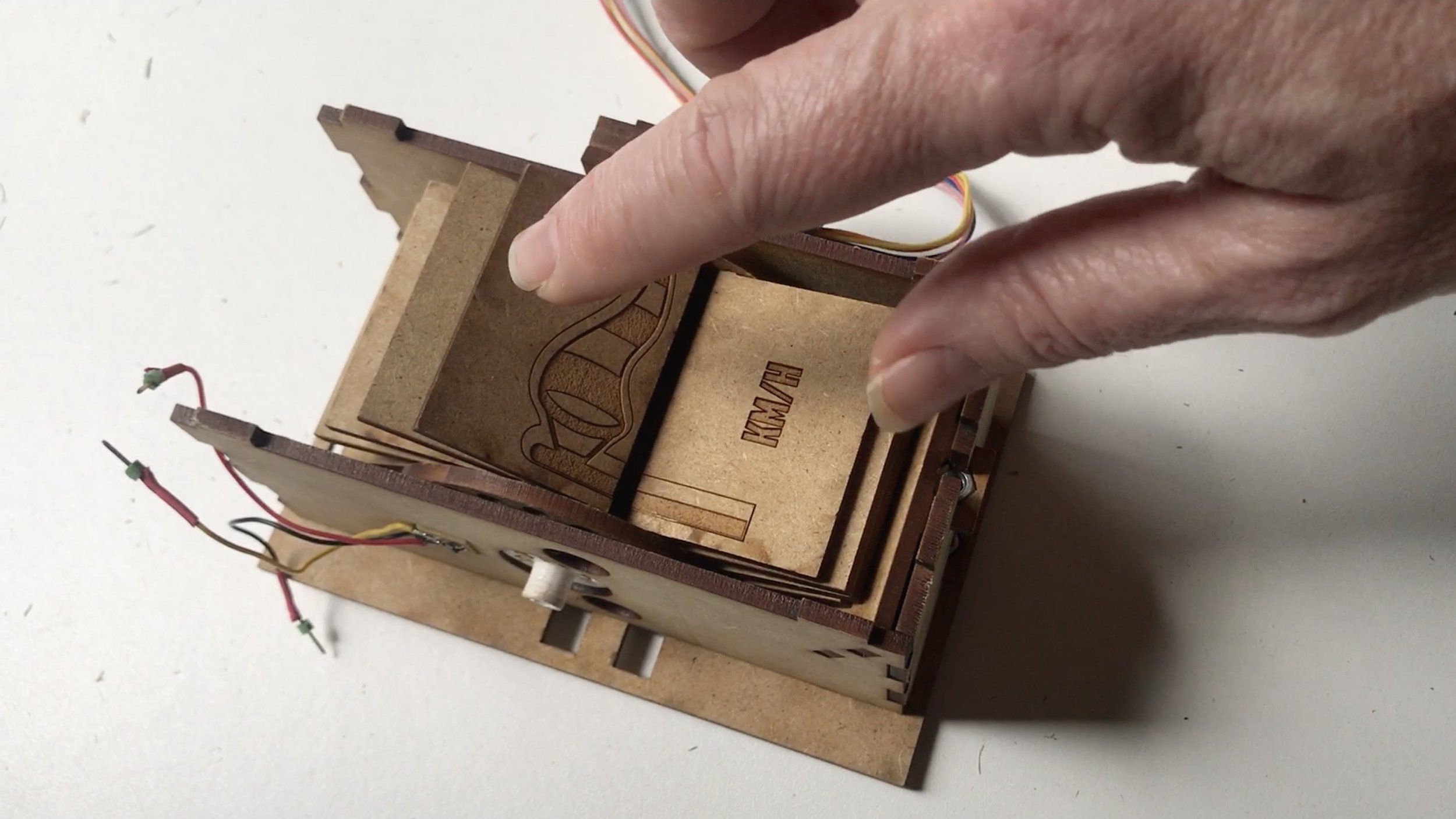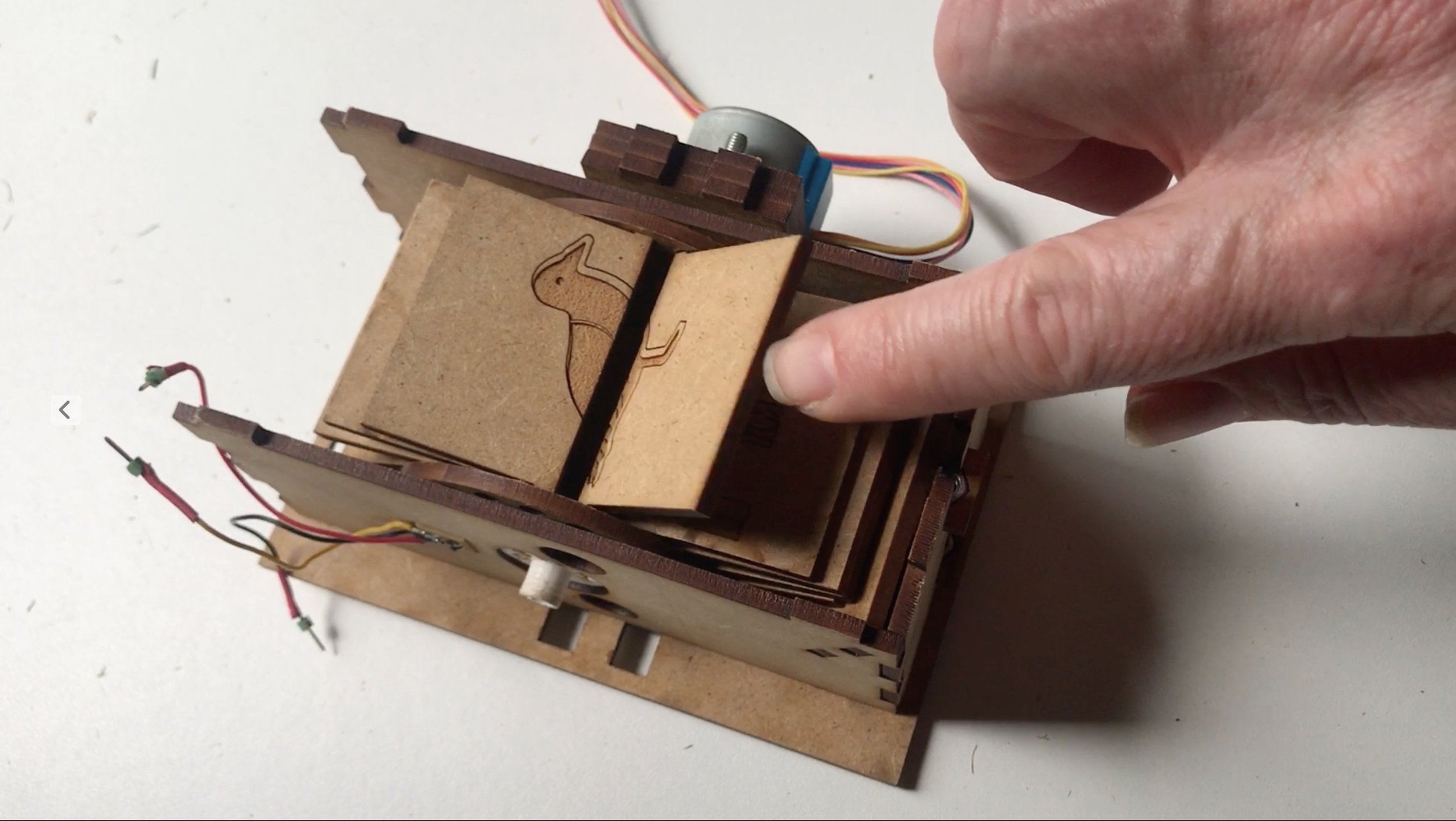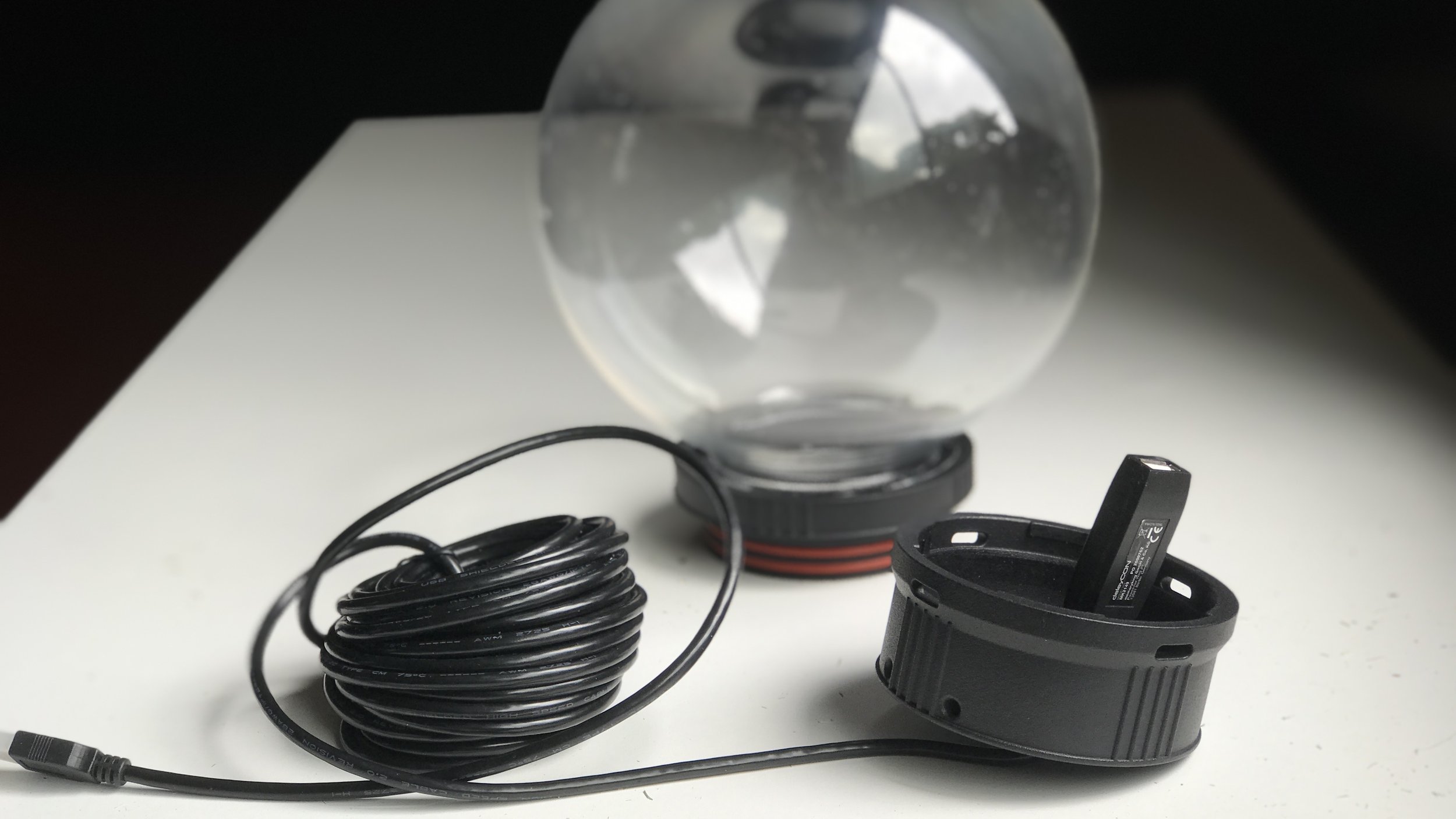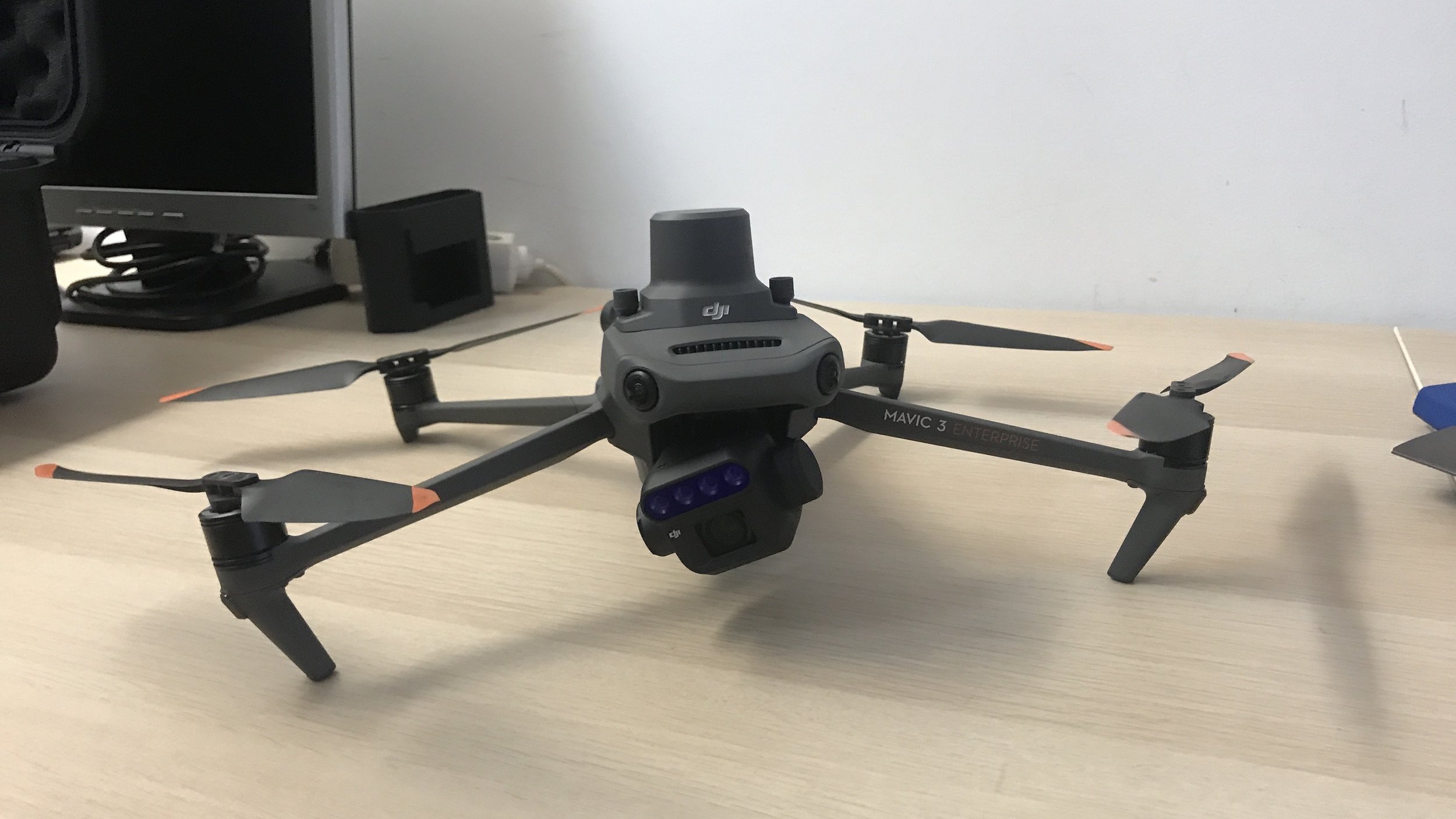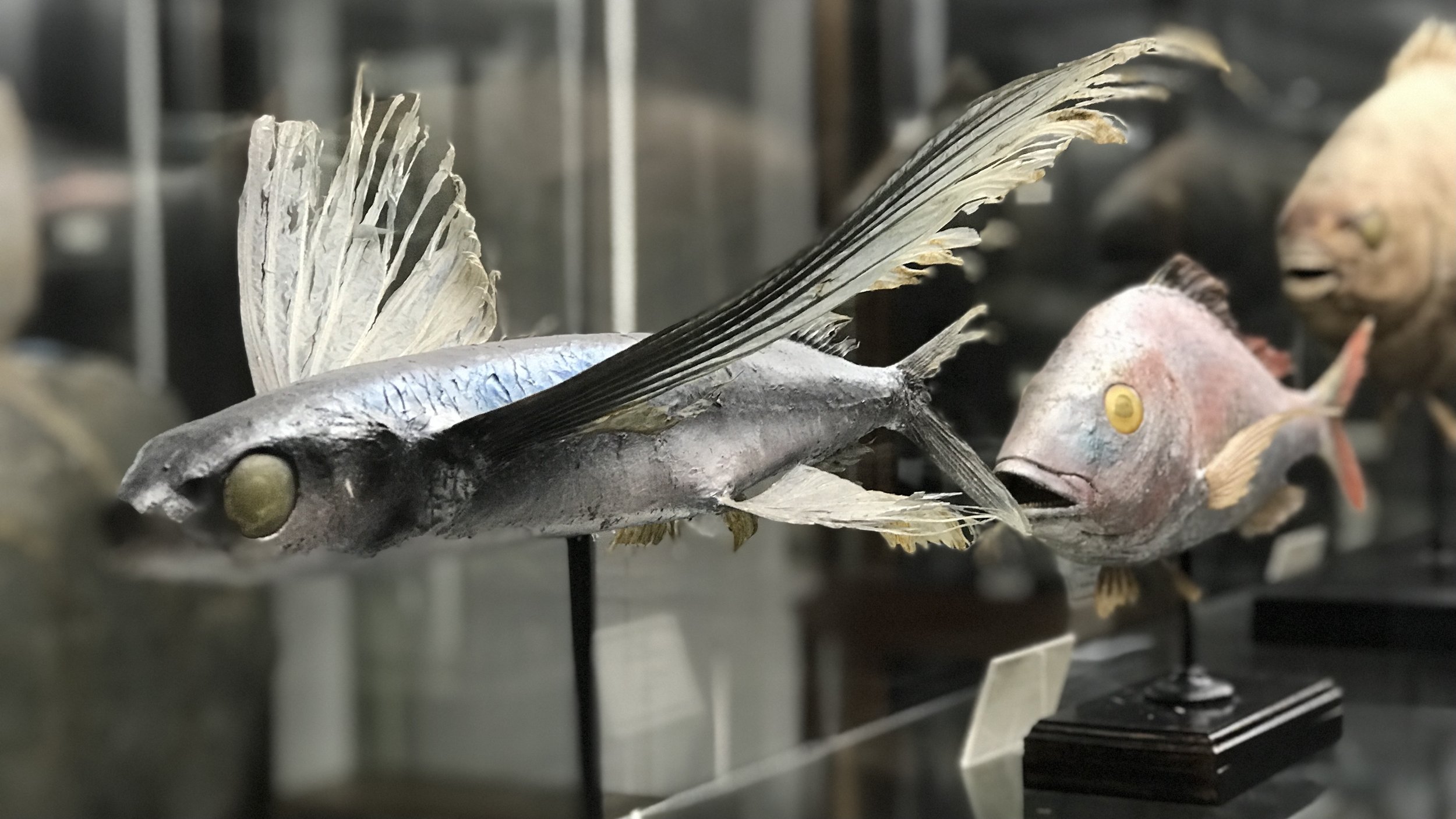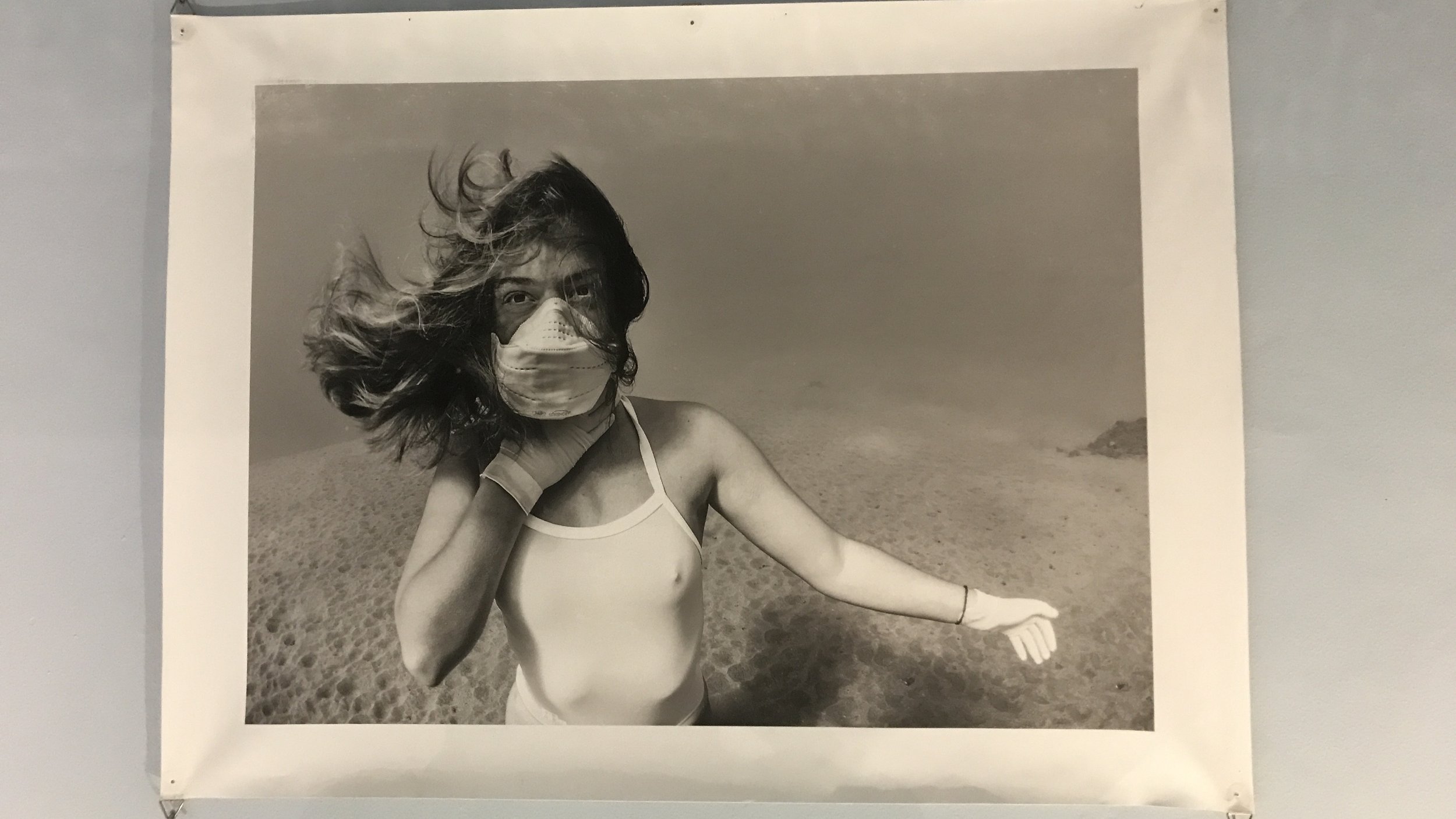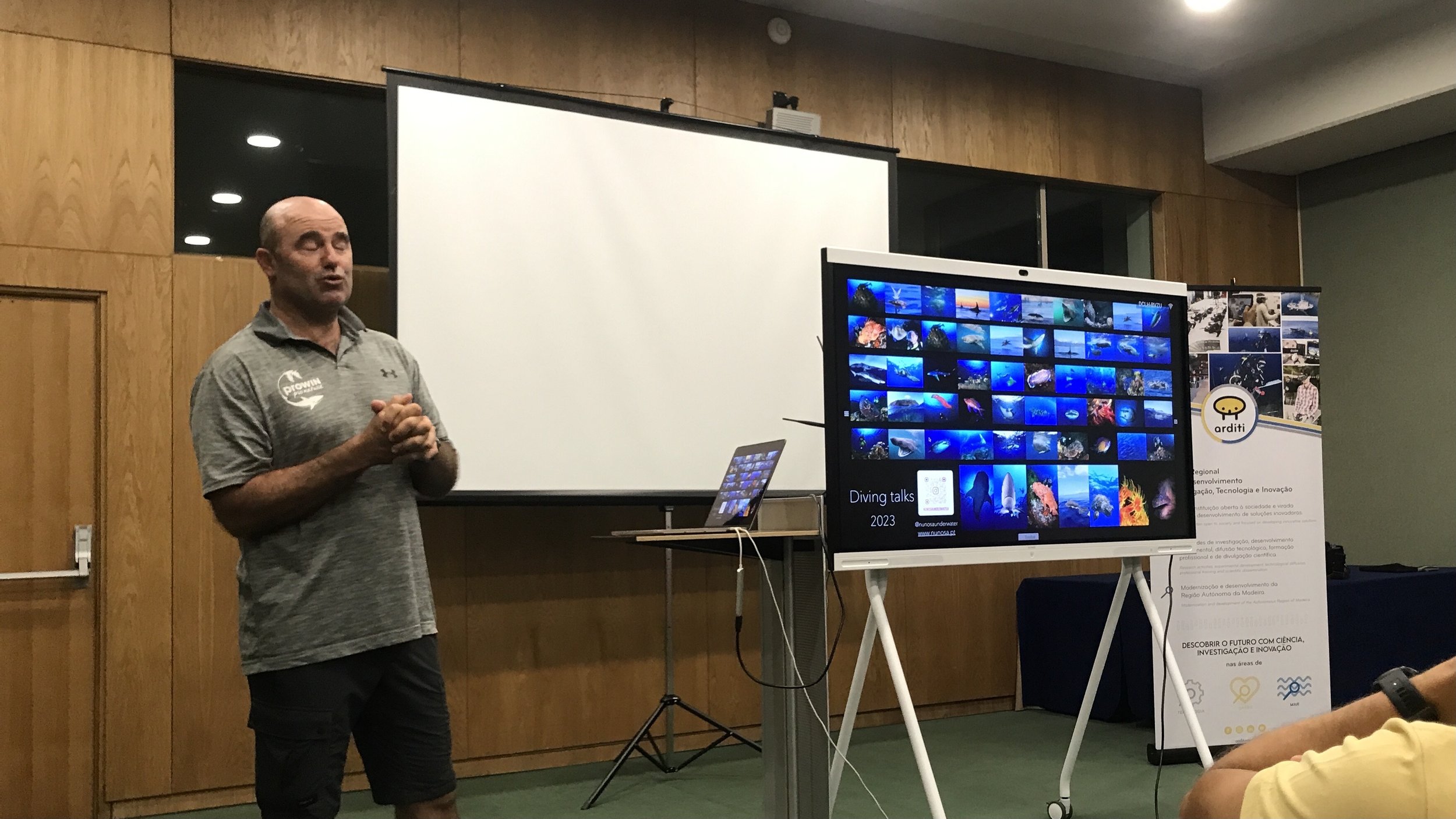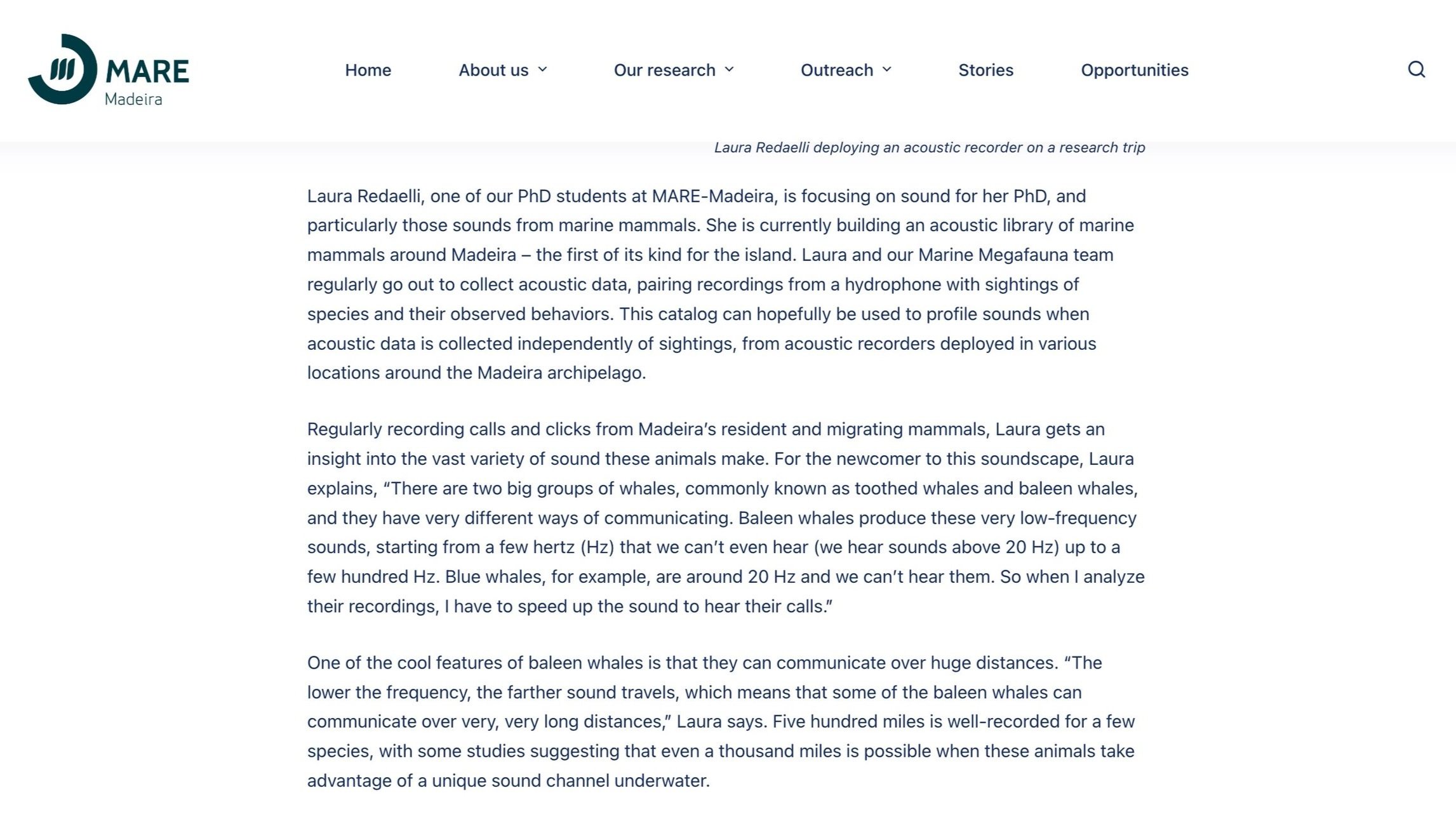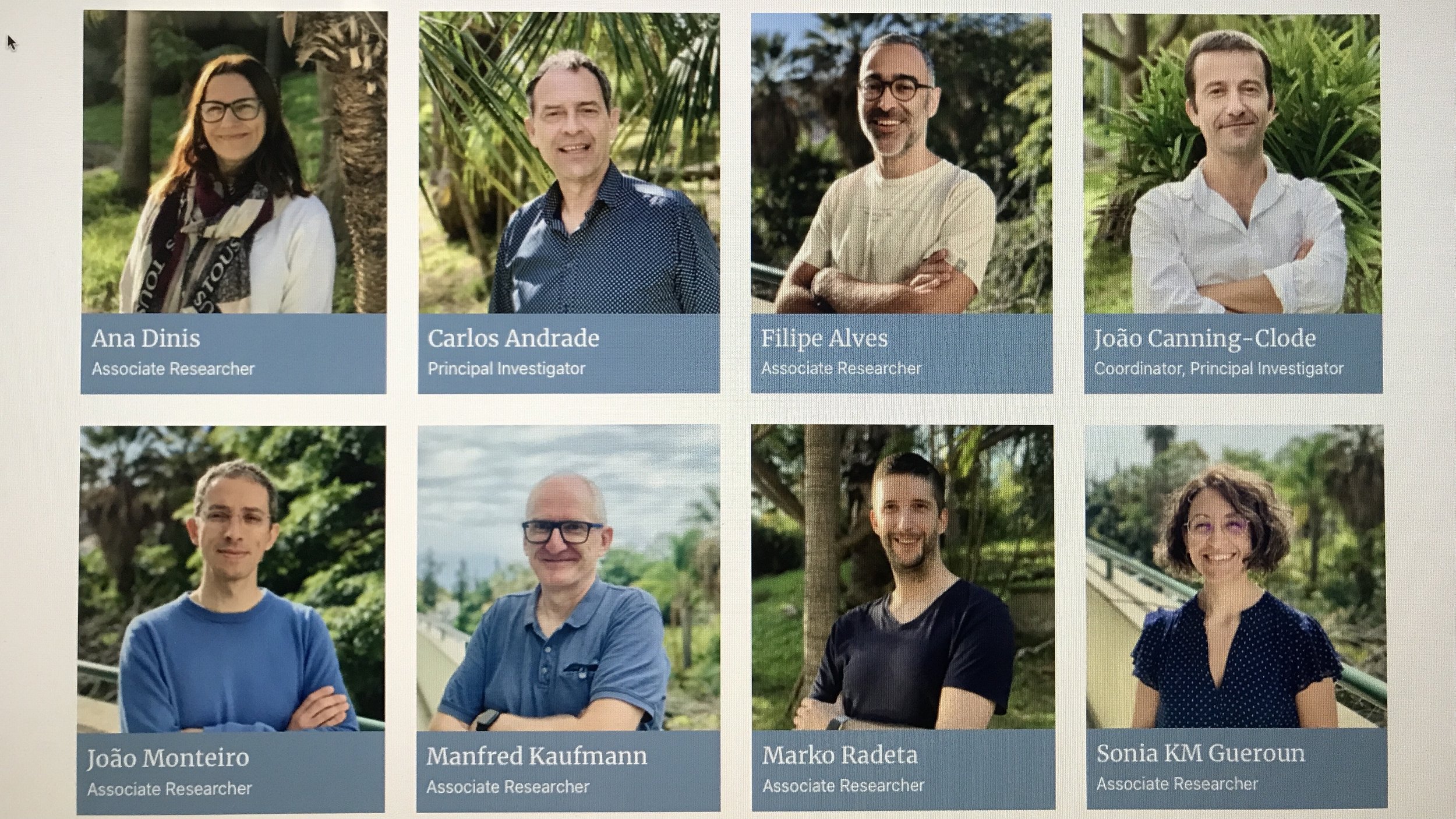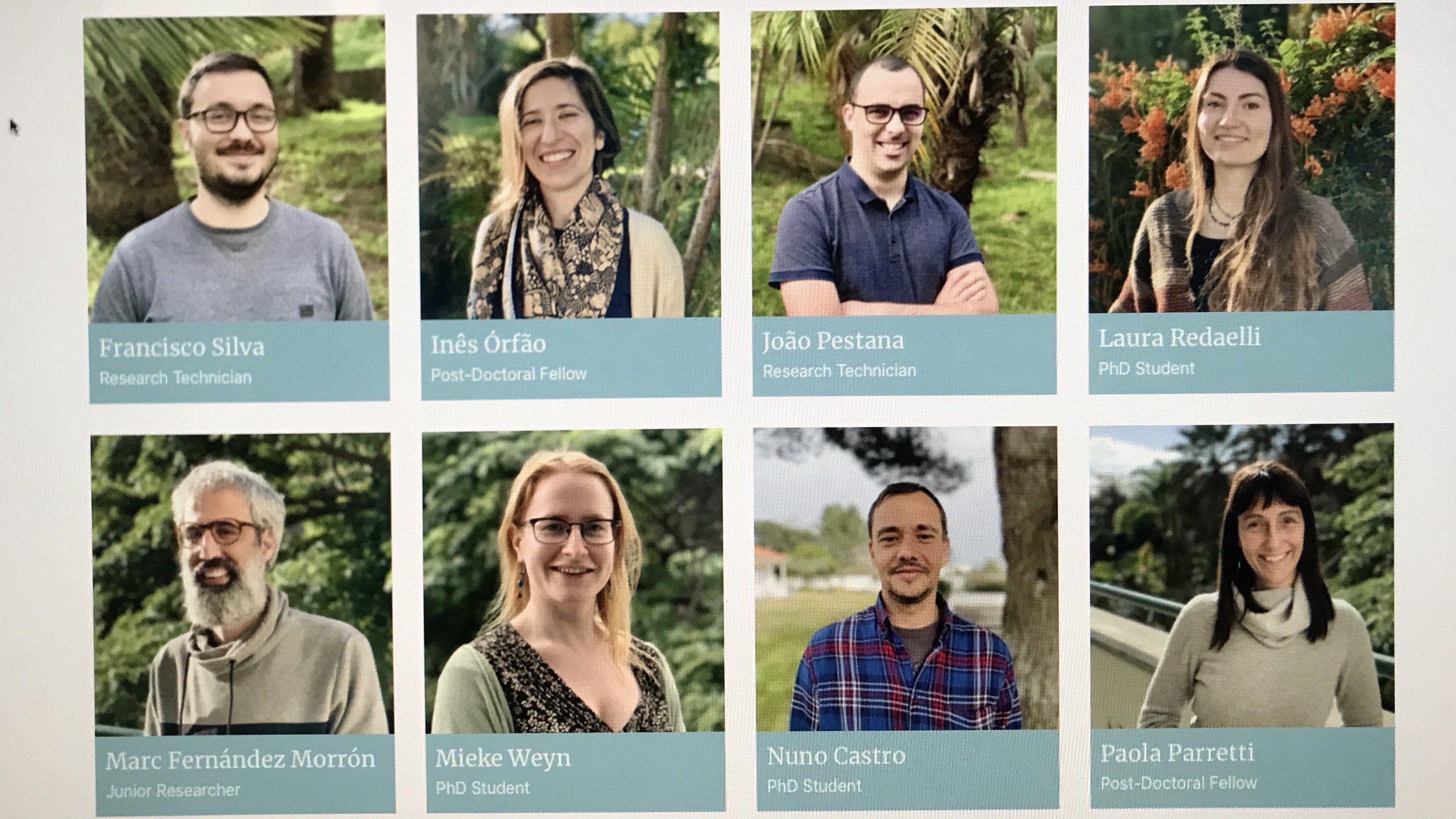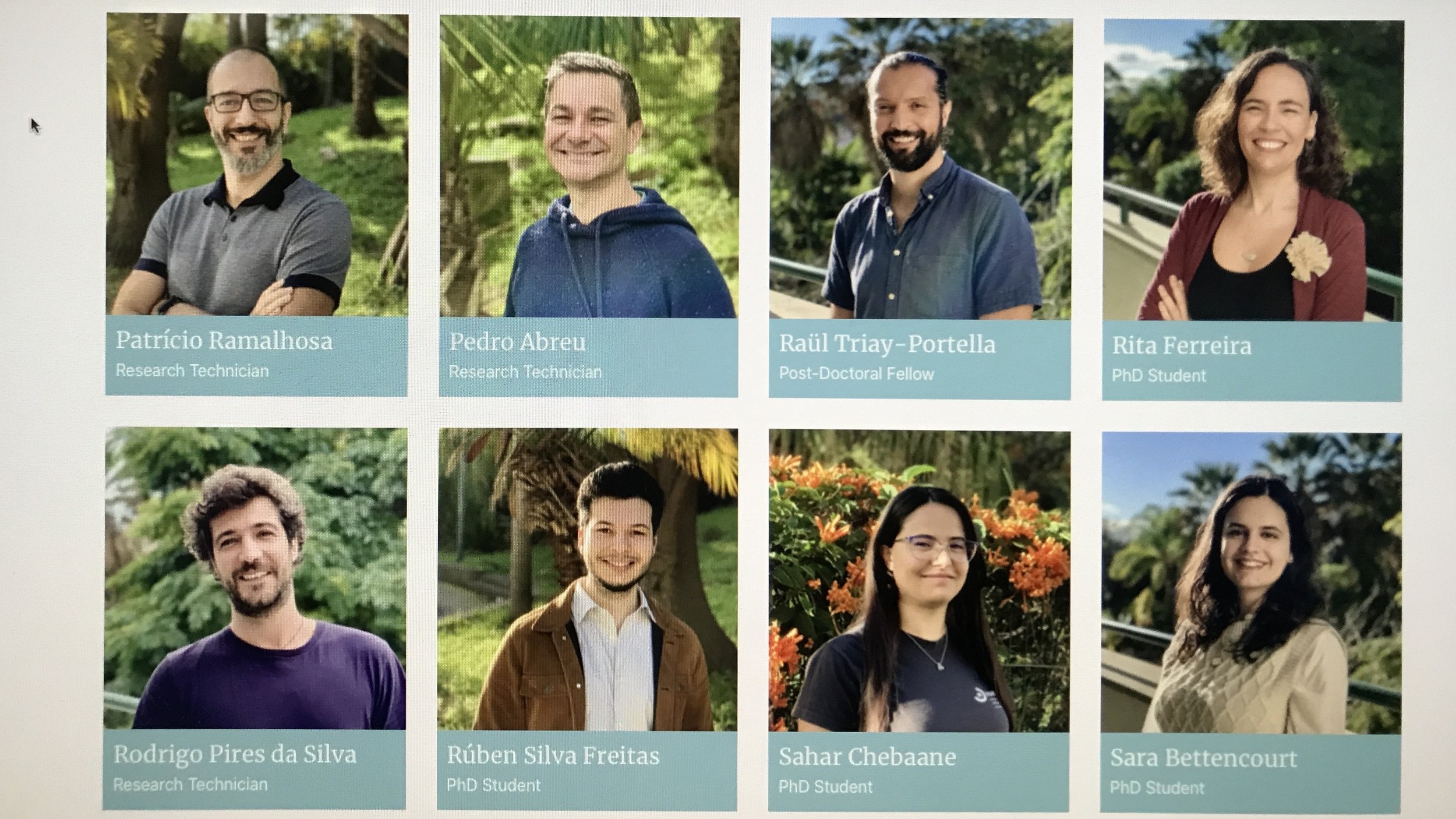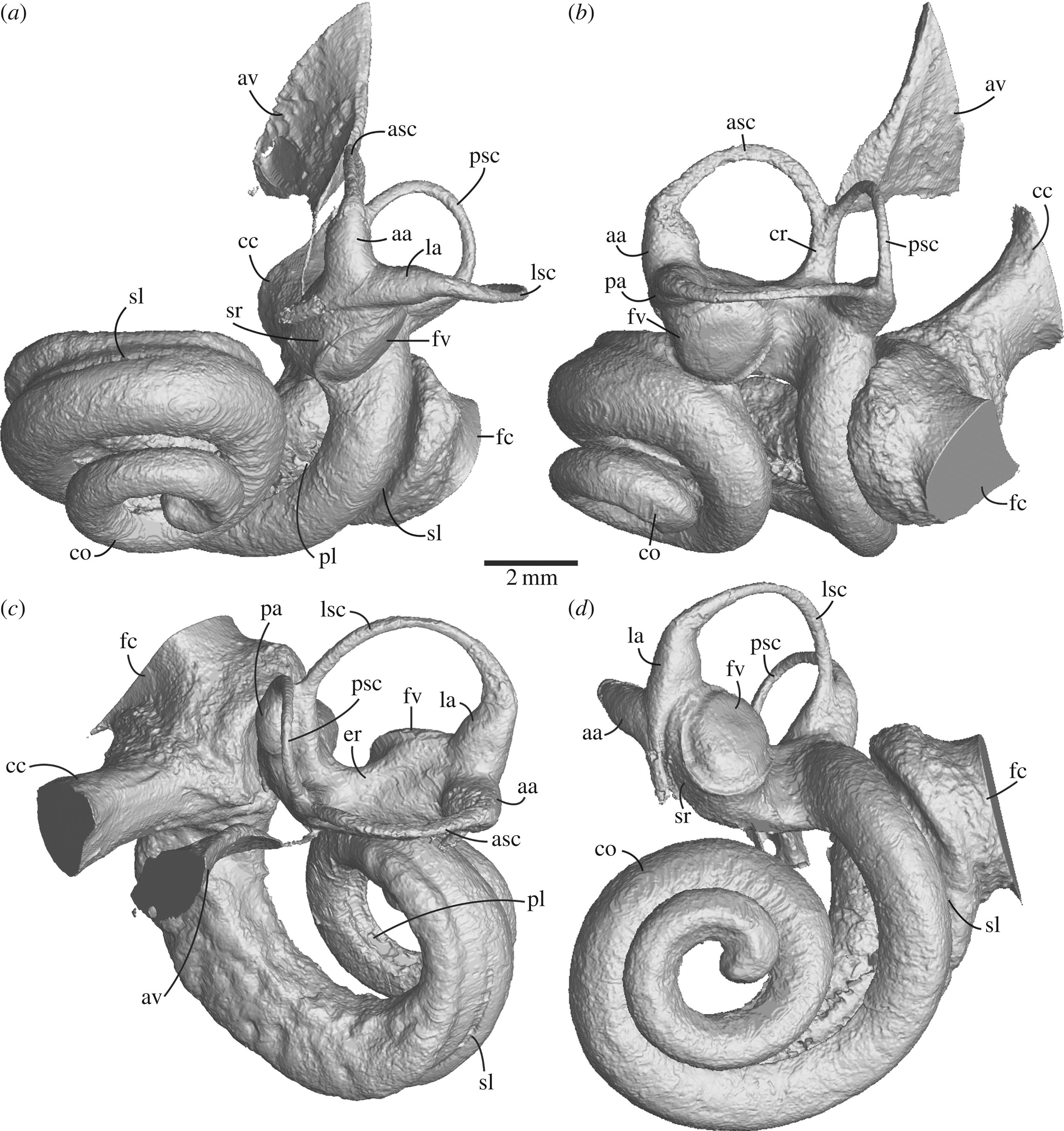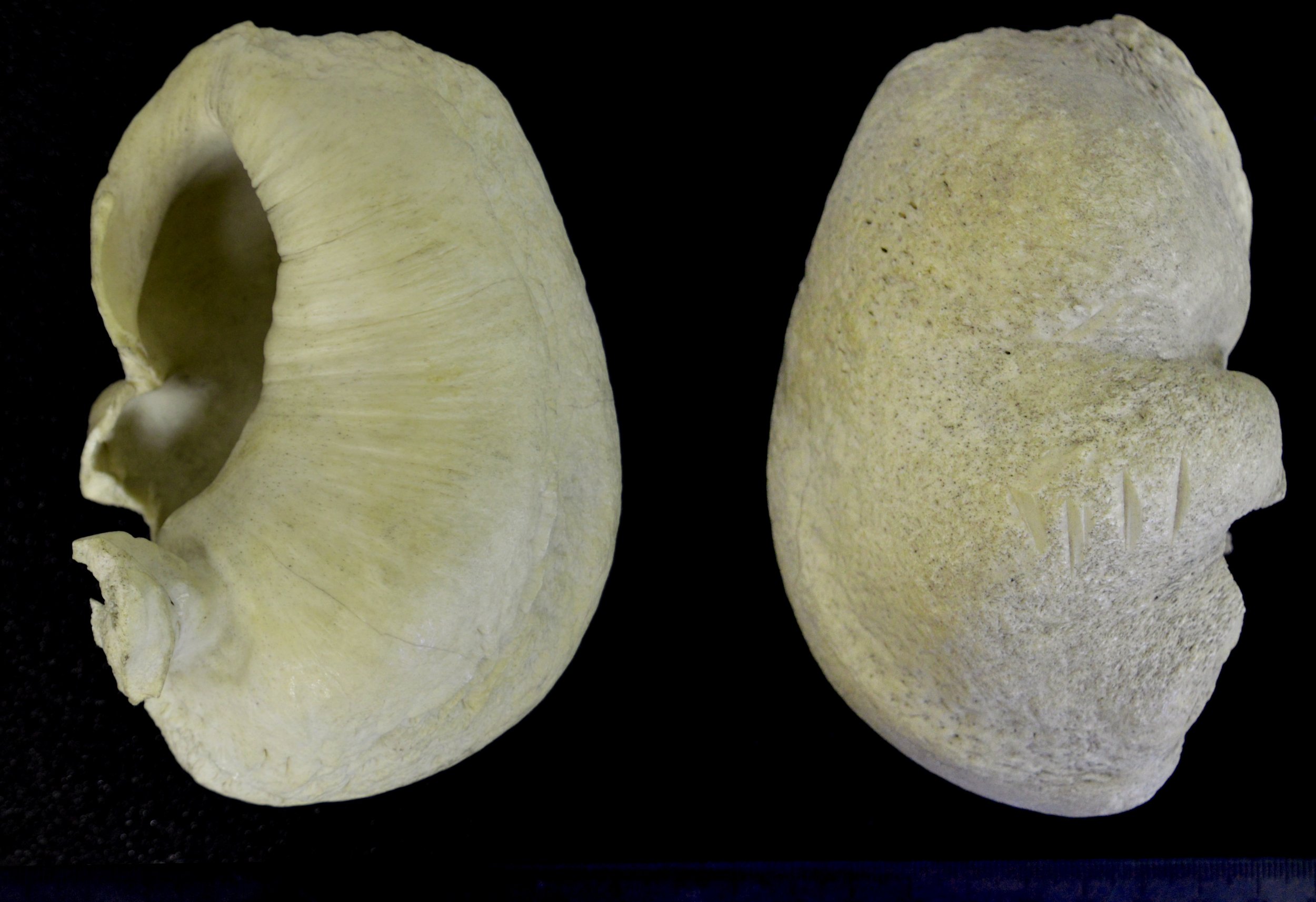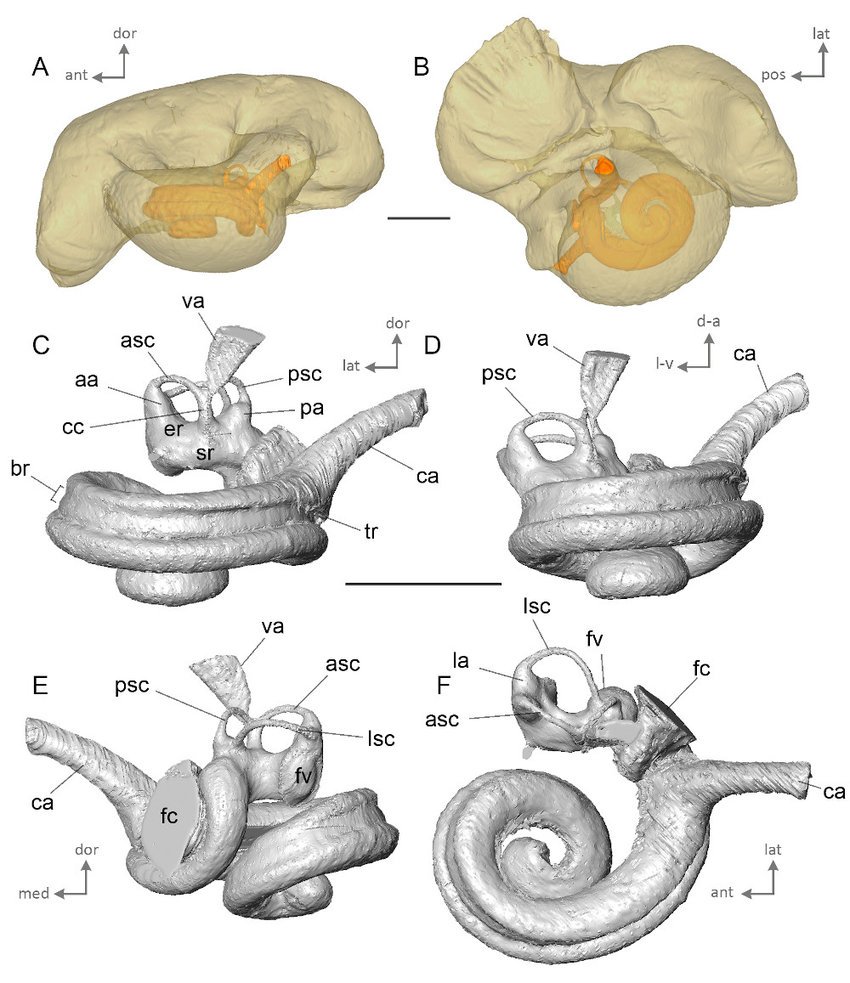Week one (October 15th 2024)
Poseidon diaries is a weekly online sketchbook of materials, images, questions, ideas, papers, collected during a three-month SGSAH-funded residency where I am embedded in the technology department at MARE Marine Research Centre, Madeira, Portugal.
Some of these ideas may remain as questions or one-line provocations-to-self, to be picked up again by me at a later date. Others may be developed with my collaborators at Mare Madeira and the outcomes shared publicly. My mentor at Mare is Marko Radetta.
What can whales hear? listening with whales
Q How can an artwork promote connections between the public and marine megafauna that emphasises non-invasive engagement, while raising awareness of the animals sensitivity to anthropogenic noise?
Idea one: Sculpted sound
Proposal
A public sculpture that uses technology developed by Wave Labs as a real time interface between audience and megafauna.
Elements
Tactile hollow metal sculpture with internal resonator; Mare’s Poseidon device (Passive-acoustic Ocean Sensor for Entertainment and Interactive Data-gathering in Opportunistic Nautical Activities).
Form
Possibly from cetacean earbones or 3d imaging of inner ear?
Prototype tactile interface
VE and Jamie Ferguson 2019. Created for feeling low frequencies in tidal sonification, alongside listening to higher frequency audio.
Q How to feel low frequencies without hearing them?
Audio overspill from the aluminium tubing was not entirely eliminated in the prototype. In the later immersive installation, ‘bass shakers’ were installed in mdf seating plinths as an alternative “sono-haptic” interface.
questions
Which cetacean?
Should be large, recognisable to public, and have wide frequency range of hearing. Odontoceti (toothed whales) use echolocation which makes them doubly interesting. Mysteceti (baleen whales) have lowest range of hearing and are the largest.
V low frequency waves, below the range of human hearing. Compare geological signals with whale calls. How are these recorded - ask Laura.
Other ways to experience the other ranges - actual audio - spectrograms - animations of spectrograms. Think about a visualisation of a. the missing range due to boat noise, and also the scale of human level vs whale perceptual ranges.
What does it mean poetically that the fourier formula of the audio signal creates the spectrograph/gram?
IDEA two: Can whales hear the earth move?
questions
Which whales have the lowest frequency hearing? What can they hear? Could they hear seismic activity below the ocean bed? (Marko also suggests they may hear the magnetosphere above the earth interacting with solar flares?!)
If so, are baleen whales the ultimate interconnected being on Earth?
idea three: love letters via e-whale
What would humans like to communicate back? Is there any communication that would not be invasive? What kind of a message, or gift, would a whale most like to receive?
Perhaps silence would be the best gift. How do we take a passive action? What would this look like poetically? Do no harm. A hippocractic oath for a new generation of whale watchers.
idea four: holes in the sound walL, AKA listening nearby (after trinh t mihn ha)
What is the hole in the frequency range that is disturbed by anthropogenic noise? A. what does it look like? B. Does it sound like noise or silence? C. Role of AI in filtering?
idea five: noise cancelling engines for whale listening craft
At what stage is the technology on this?
idea six: BE MORE WHALE; AKA blue (after derek jarman)
In the majority of underwater observations all you see is water.
Make a virtue of this. An entirely blue film in the sense of actually filming underwater scenes where nothing clearly identifiable is happening. These images must be beatiful and haunting and mysterious. Suggesting there is always something just out of sight that may at any movment be revealed, but perhaps is not. Let the stereo soundscape paint the picture. Archive? or recorded by me?
Idea seven: squid games, AKA MARKO POLO
Like Marthin Rozo’s Bat Experience (below). An interactive game where players have to find their family members, keep their children close and tell the difference between food and prey, all through using sound. To put the audience in the position of being a sperm whale.
Video taster of ‘Bat Experience’, VR Installation, 2021. By Multi-media artist and PhD researcher Marthin Rozo, at University of the Applied Arts, Vienna. Rozo collaborated with Biologist Juan Felipe Sehuanes to create this interactive experience which aims to give the audience an experience of how bats perceive their environment.
idea eight: listening to the listeners
Interviews with the acoustic biologists, technologists and communicators. All asked the same set of left-field questions. Or a podcast - speak to Diane (communications manager) about this. Good for accessibility of website. Is there an active community of blind and partially sighted people in Madeira?
*https://www.eldreds.com/auction-lot/*-whale-s-ear-bone-length-5-._A9643FB9AD

